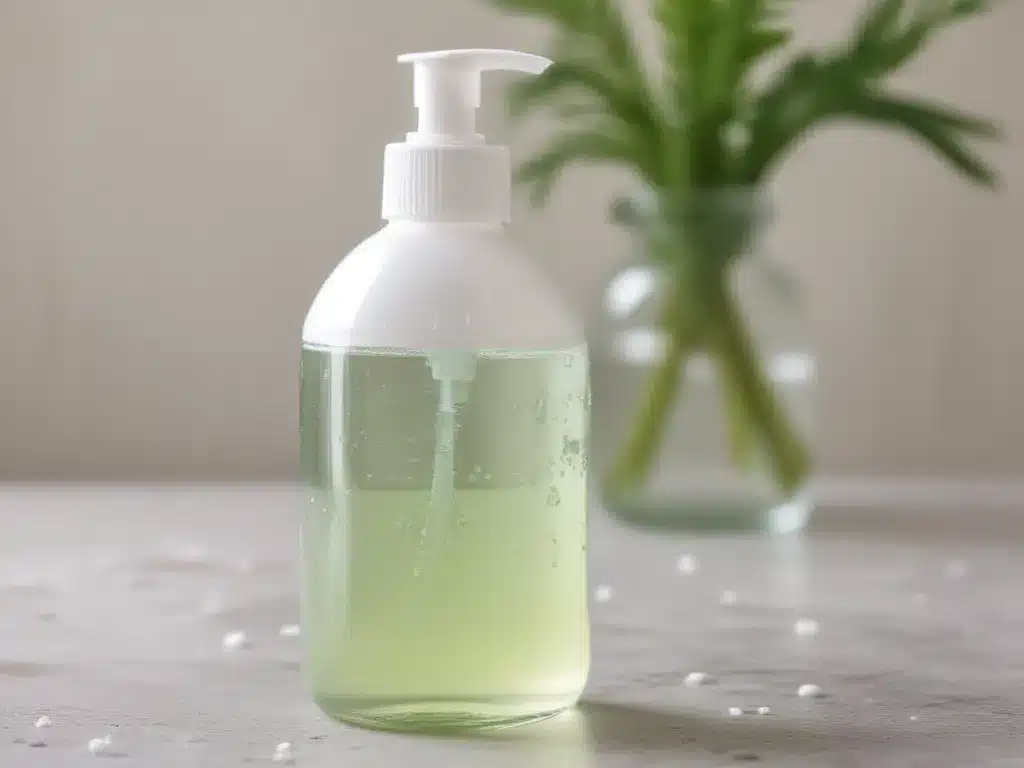Introduction
Maintaining a clean and hygienic environment is crucial for our well-being, but many commercial cleaning products contain harsh chemicals that can be harmful to our health and the environment. Fortunately, nature provides us with a wide range of natural disinfectants that are not only effective in killing germs but also safe for us and our planet. In this comprehensive article, I will explore the various natural disinfectants available and how they can help you keep germs under control in your home or workplace.
Vinegar: A Versatile Natural Disinfectant
Vinegar is a staple ingredient in many households, and for good reason. Its acetic acid content makes it an excellent natural disinfectant that can kill a wide range of bacteria, viruses, and fungi. Vinegar is particularly effective against E. coli, salmonella, and Staphylococcus aureus.
To use vinegar as a disinfectant, you can mix equal parts of vinegar and water in a spray bottle and apply it to surfaces. Let it sit for a few minutes before wiping it away. Vinegar is also great for cleaning floors, countertops, and even your laundry.
Hydrogen Peroxide: A Powerful Germ-Killer
Hydrogen peroxide is another natural disinfectant that is highly effective against a wide range of germs, including bacteria, viruses, and fungi. It works by releasing oxygen, which oxidizes and kills microorganisms.
To use hydrogen peroxide as a disinfectant, you can mix one part hydrogen peroxide with two parts water in a spray bottle and apply it to surfaces. Let it sit for a few minutes before wiping it away. Hydrogen peroxide is particularly useful for disinfecting cutting boards, countertops, and even wounds.
Essential Oils: Nature’s Antimicrobial Powerhouses
Essential oils are concentrated plant extracts that have been used for centuries for their therapeutic properties. Many essential oils, such as tea tree, eucalyptus, and thyme, possess potent antimicrobial properties that make them excellent natural disinfectants.
To use essential oils as a disinfectant, you can add a few drops of your chosen essential oil to a spray bottle filled with water and a small amount of vinegar or hydrogen peroxide. Shake well before use and apply to surfaces. Let it sit for a few minutes before wiping it away.
| Essential Oil | Antimicrobial Properties |
|---|---|
| Tea Tree Oil | Effective against bacteria, viruses, and fungi |
| Eucalyptus Oil | Antibacterial, antiviral, and antifungal |
| Thyme Oil | Powerful antimicrobial and antioxidant properties |
Baking Soda: A Gentle Yet Effective Disinfectant
Baking soda, or sodium bicarbonate, is a versatile household ingredient that can be used as a natural disinfectant. Its alkaline nature makes it effective against a variety of germs, including bacteria, fungi, and even some viruses.
To use baking soda as a disinfectant, you can sprinkle it onto surfaces and let it sit for a few minutes before scrubbing and rinsing. Alternatively, you can mix baking soda with water to create a paste and apply it to surfaces, letting it sit before wiping it away.
Lemon Juice: A Citrus-Powered Disinfectant
Lemon juice is a natural disinfectant that harnesses the power of citric acid to kill germs. Its acidic nature makes it effective against a variety of bacteria, viruses, and fungi, while its fresh, citrusy scent leaves a pleasant aroma.
To use lemon juice as a disinfectant, you can mix equal parts of lemon juice and water in a spray bottle and apply it to surfaces. Let it sit for a few minutes before wiping it away. Lemon juice is particularly useful for cleaning cutting boards, countertops, and even removing stains.
Combining Natural Disinfectants for Maximum Effectiveness
While each of these natural disinfectants is effective on its own, combining them can create a powerful germ-killing solution. For example, you can mix vinegar, hydrogen peroxide, and essential oils to create a potent all-purpose disinfectant spray.
When combining natural disinfectants, it’s important to follow proper dilution guidelines and avoid mixing ingredients that may react adversely with each other. It’s also essential to test the solution on a small, inconspicuous area first to ensure it doesn’t damage surfaces.
Proper Usage and Safety Precautions
While natural disinfectants are generally safe, it’s important to follow proper usage guidelines and take necessary precautions. Always read and follow the instructions on product labels, and avoid ingesting or inhaling undiluted solutions.
When using essential oils, be mindful of potential allergic reactions or skin sensitivities. It’s recommended to do a patch test before using essential oils topically or in enclosed spaces.
Additionally, ensure proper ventilation when using natural disinfectants, and keep them out of reach of children and pets.
Conclusion
Incorporating natural disinfectants into your cleaning routine is a safe and effective way to keep germs at bay while minimizing your exposure to harsh chemicals. From vinegar and hydrogen peroxide to essential oils and baking soda, nature provides us with a wide range of antimicrobial solutions that can help maintain a clean and hygienic environment. By following proper usage guidelines and taking necessary precautions, you can enjoy the benefits of natural disinfectants while protecting your health and the environment.







